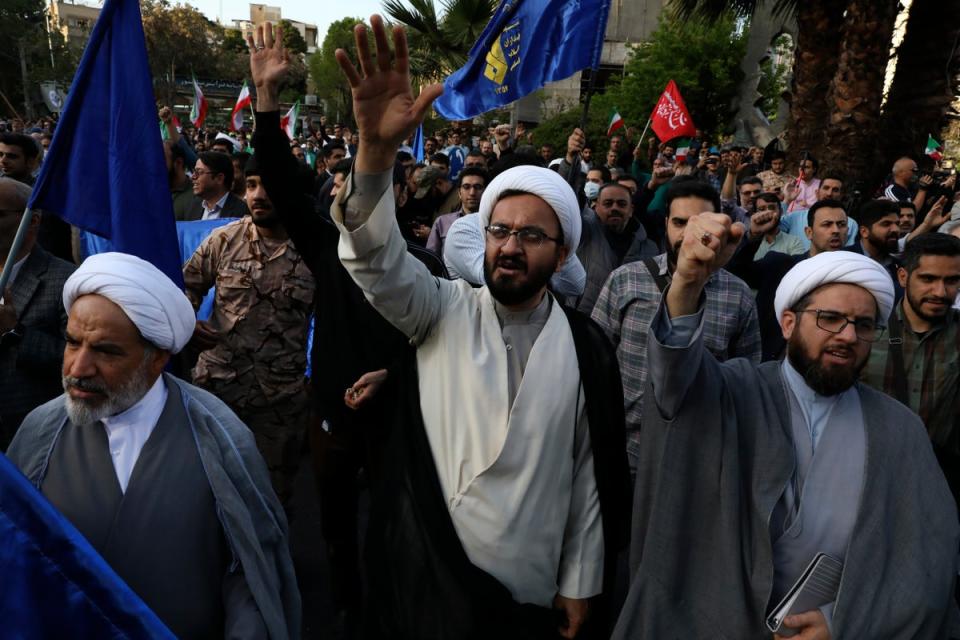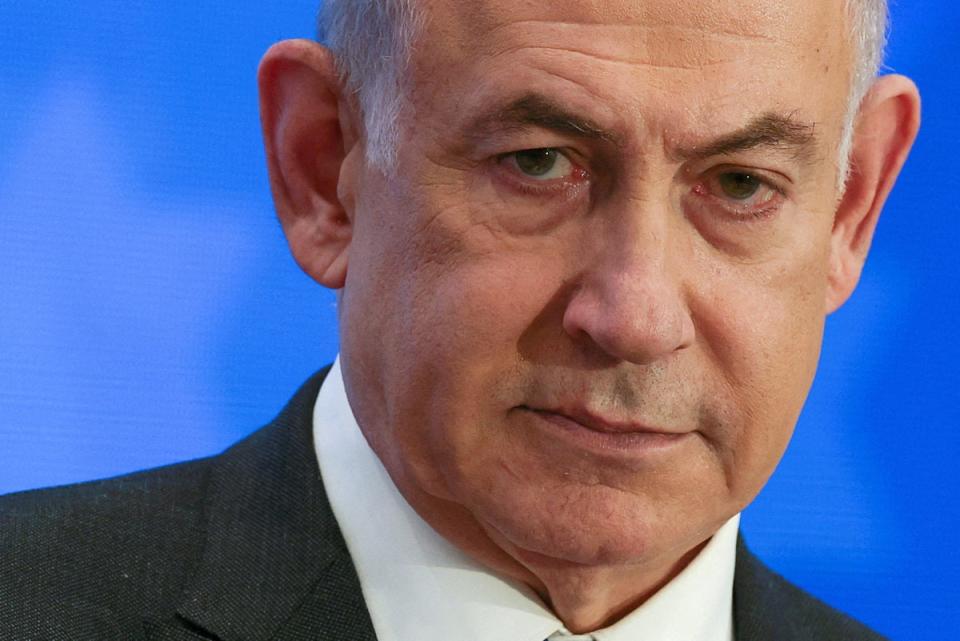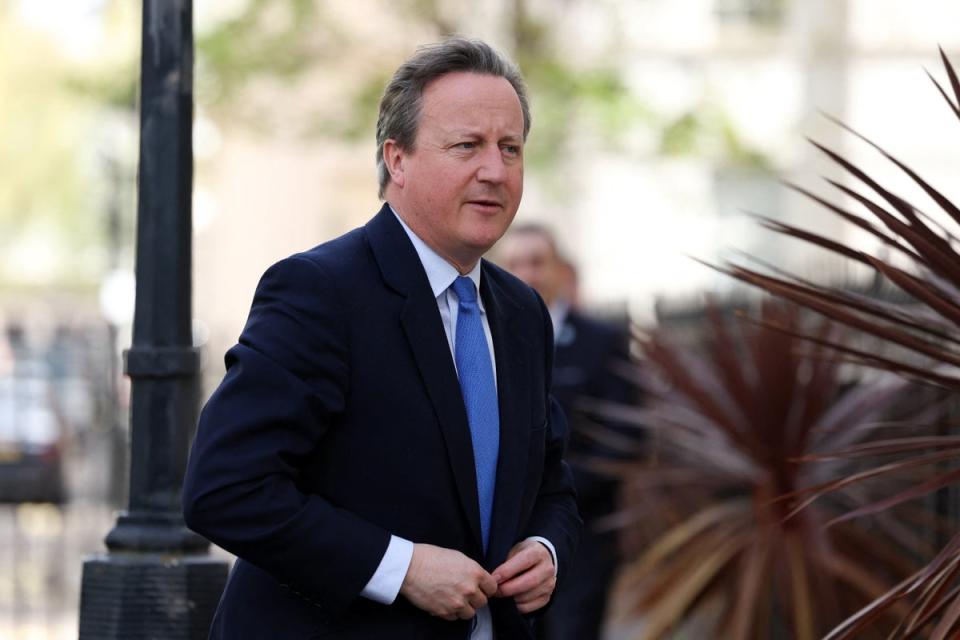What sanctions could Iran face after attack on Israel?
The US, UK and Israel’s top allies are preparing to issue further sanctions against Iran following its long-range missile and drone attack against Israel over the weekend.
Though the assault on Israel was largely unsuccessful, with more than 99 per cent of projectiles shot down, the attack has significantly raised tensions between the region’s two most heavily armed nations.
While Israel’s war cabinet discusses its military response, its allies have heeded calls from Israeli foreign minister Israel Katz to lead a “diplomatic attack”.

Iran’s President Ebrahim Raisi, meanwhile, has warned that “the slightest action against Iran’s interests will definitely be met with a severe, extensive and painful response”.
Mr Katz has written to 32 countries to ask them to place sanctions on Iran’s missile programme and follow Washington in proscribing its dominant military force, the Islamic Revolutionary Guard Corps (IRGC), as a terrorist group.
The United Nations sanctions over the missile programme expired in October but several of Israel’s allies have hinted at their intention to create their own sanctions packages.
US National Security Advisor Jake Sullivan said that the new sanctions would target “Iran including its missile and drone program” as well as the IRGC and the Iranian defence ministry.
“We anticipate that our allies and partners will soon be following with their own sanctions,” he said. “These new sanctions and other measures will continue a steady drumbeat of pressure to contain and degrade Iran’s military capacity and effectiveness and confront the full range of its problematic behaviours.”

Speaking on Tuesday, US Treasury Secretary Ms Yellen said she expected fresh sanctions to be announced soon, suggesting that Iran’s oil exports were another possible target.
“With respect to sanctions, I fully expect that we will take additional sanctions against Iran in the coming days,” she said. “We don’t preview our sanctions tools. But in discussions I’ve had, all options to disrupt terrorist financing of Iran continue to be on the table. Clearly, Iran is continuing to export some oil. There may be more that we could do.”
European Union foreign policy chief Josep Borrell, speaking in Brussels after an emergency video conference of EU foreign ministers, said some member states had asked for sanctions against Iran to be expanded and that the bloc’s diplomatic service would begin working on the proposal.
Mr Borrell said the proposal would expand a sanctions regime that already seeks to curb the supply of Iranian drones to Russia so that it would also include the provision of missiles and could also cover deliveries to Iranian proxies in the Middle East. It is believed the same model of drones used in Iran’s attack on Israel over the weekend are also frequently used by Russia against Ukraine.

The G7 group of the world’s seven largest advanced economies also said it was now “coordinating a diplomatic response”.
UK Foreign Secretary David Cameron said this morning that he backed “coordinated sanctions against Iran”. He added: “The UK has in many ways led the way with our new sanctions regime, sanctioning dozens of people in Iran, sanctioning the IRGC in its entirety. And I think there is more we can do to show a united front.”
In January, the UK, in line with the US, sanctioned seven Iranian officials who they said were all members of the IRGC, as well as one organisation. The sanctions included asset freezes and UK travel bans.
But unlike the US, the UK has still not proscribed the IRGC as a terrorist organisation, despite calls to do so from Labour leader Sir Keir Starmer and former home secretary Suella Braverman. Lord Cameron has argued that proscription would disrupt diplomatic ties with Tehran and threaten a key back channel for communicating with the regime.

 Yahoo News
Yahoo News 
